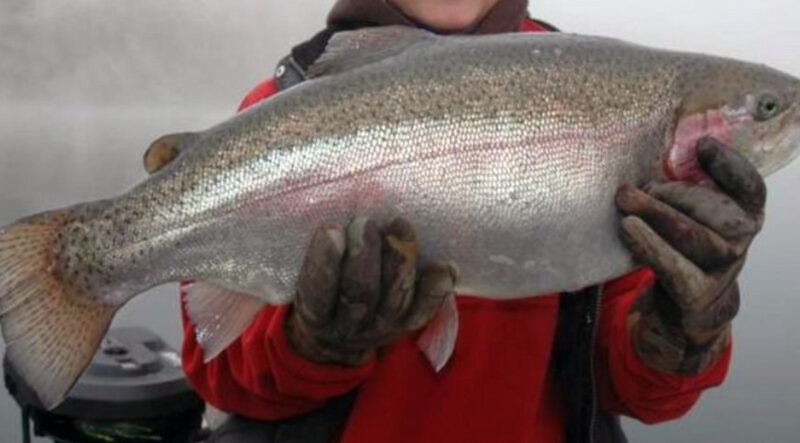“Politically self-serving” fish farming ban challenged in Washington
Washington court case will mirror the botched political overreach involving aquaculture operations in British Columbia’s Discovery Islands.
By Fabian Dawson
SeaWestNews
Cooke Aquaculture is going to court to fight what it terms as a “politically self-serving executive action to ban commercial fish farming” in the State of Washington.
The Canadian seafood farmer, who raises native Steelhead in partnership with the Jamestown S’Klallam Tribe, is also asking Washington’s Superior Court for a preliminary injunction to secure a reasonable period of time to safely harvest the fish, and remove the equipment remaining at the Rich Passage and Hope Island sites.
Hilary Franz, Washington’s Commissioner of Public Lands, who heads the state’s Department of Natural Resources (DNR), abruptly issued notices to Cooke to stop its operations last month, and followed it up with an executive order to ban the State’s 40-year tradition of fish farming in Puget Sound.
Other than spouting the rhetoric of anti-salmon farming detractors, Franz has not made any mention of a series of rulings, and peer-reviewed scientific studies, that show Cooke’s operations in Washington State has little to no adverse environmental impact to wild stocks in the area.
“Given the deplorable actions of Commissioner Franz and DNR, Cooke has filed a complaint in the Superior Court of the State of Washington to appeal the lease renewal denial, to protect its employees, the environment, and its legal rights,” said Joel Richardson, Cooke’s VP of Public Relations.
“Cooke is confident that the court will conclude that DNR had no basis in law or science to deny the Rich Passage and Hope Island fish farm lease renewal applications,” said Richardson.
“Right after announcing the lease application denials and holding a press conference on the ban, Commissioner Franz pivoted to using the announcement to fundraise for her re-election campaign, a stinging insult to those employed by the aquaculture industry in the state who are now faced with losing jobs right before the holidays.”
The Rich Passage and Hope Island farms have been present at the same locations for more than 40 years, with multiple lease renewals being granted by DNR to previous operators. Scientific studies and monitoring data have consistently shown that the Rich Passage and Hope Island fish farms do not have an adverse impact on the environment. The fish grown by Cooke are the exact strain of sterile rainbow trout used by the Washington Department of Fish and Wildlife (WDFW) to stock lakes and rivers throughout the state.
“The trout farms are an important part of domestic food production and are needed to curb a massive seafood deficit where 90% of seafood consumed in the United States is imported. Wild fish catches cannot meet the projected demand for seafood, and aquaculture is essential to preserving wild fisheries,” said Richardson.
“DNR’s refusal to renew Cooke’s leases was punitive, arbitrary, and contrary to extensive scientific research completed by the WDFW,” he said.
Franz by ordering the ban, has essentially thumbed her nose at the January 2020 landmark 9-0 ruling, by the Washington State Supreme Court which found the claims about disease and sea lice impacting wild stocks, that have been falsely and widely propagated by anti-fish farm activists in the Pacific Northwest, to be without merit.
This week’s court filings by Cooke come in the wake of calls for an inquiry into Franz’s recent actions. A broad range of US national, state, and species-specific trade associations, fisheries scientists, resource economists, and veterinary medicine professionals, have sent Franz a letter saying they are concerned at the lack of peer-reviewed science and historical data that would support the ban.
“We believe that a third-party review is needed to show that Franz’s order has no basis in scientific fact and is, in essence, an unsupported action by a government agency,” the letter stated.
The Washington State ban, mirrors a similar episode of political over-reach in British Columbia involving a ministerial order to phase out salmon farms in the contentious Discovery Islands.
That decision by former Canadian Fisheries Minister Bernadette Jordan was made despite nine-peer reviewed scientific studies which found farmed salmon pose minimal risks to migrating wild stocks in the Discovery Islands.
Jordan also ignored her deputy minister’s recommendation for a more coordinated approach to the closures.
The Federal Court of Canada last April ordered the government to set aside its decision to phase out the Discovery Islands salmon farms after reaffirming an earlier ruling that “salmon aquaculture in B.C. poses no more than a minimal risk to wild salmon.”
Joyce Murray, who replaced Jordan as Fisheries Minister is currently overseeing a plan to transition open-net aquaculture operations in British Columbia.
(A farmed Steelhead. Washington Department of Fish and Wildlife photo)

